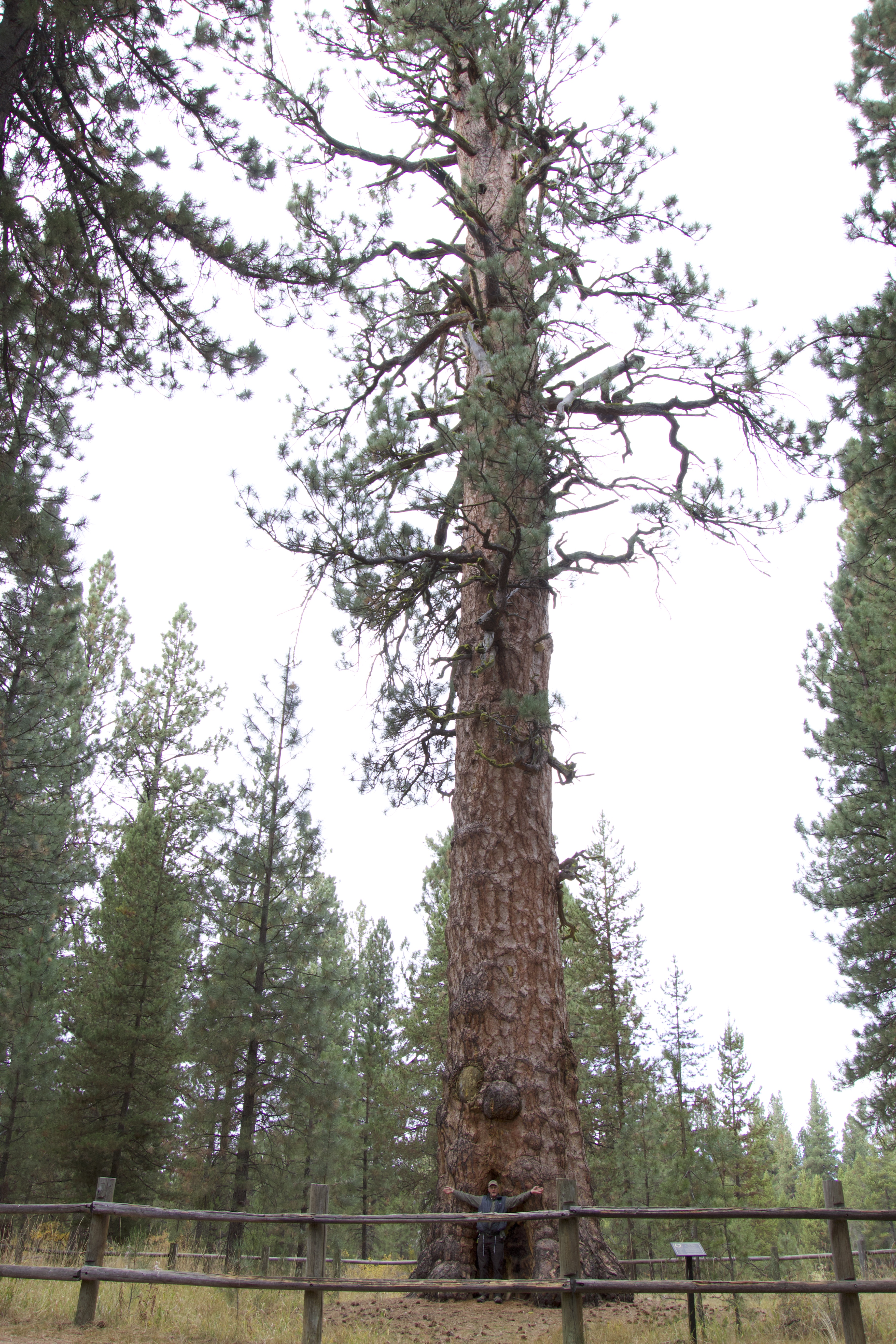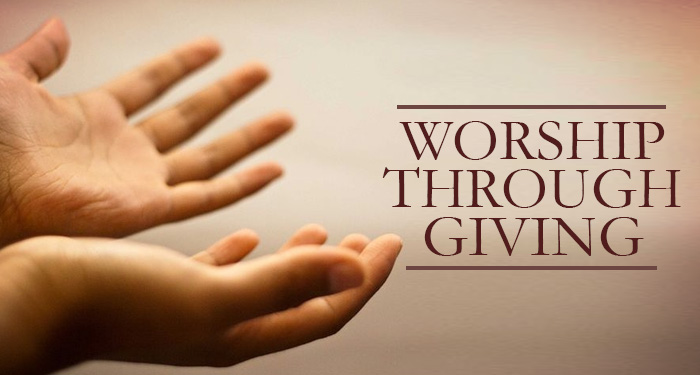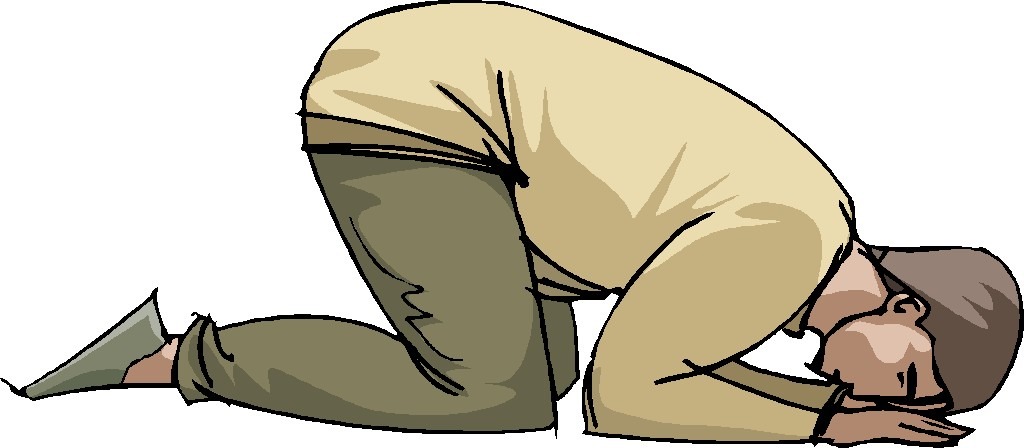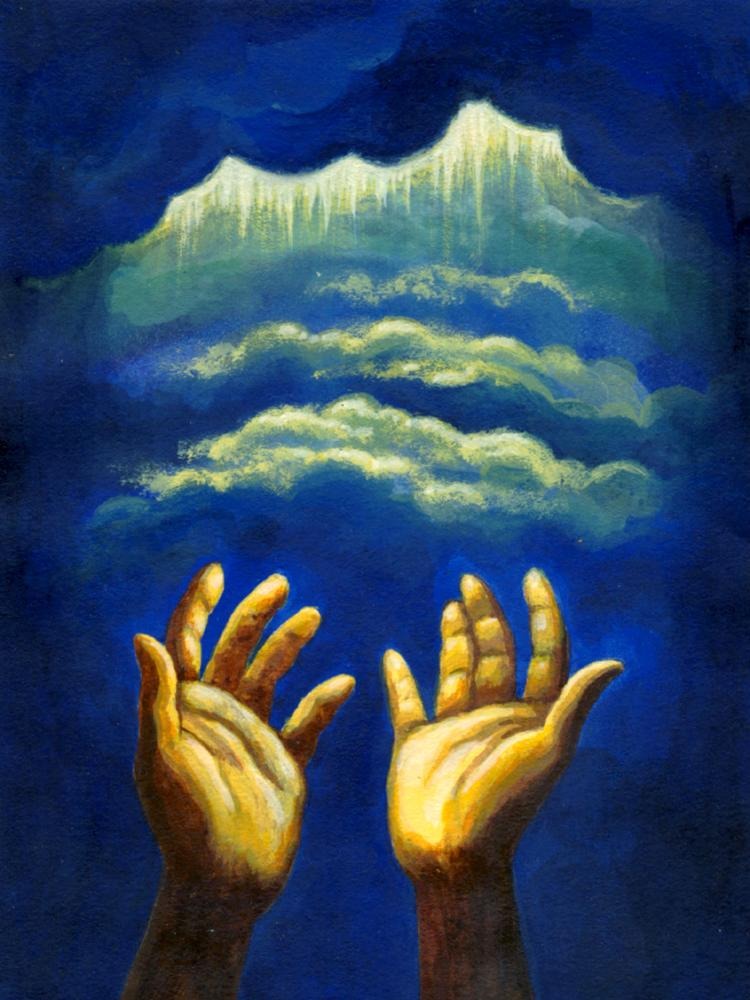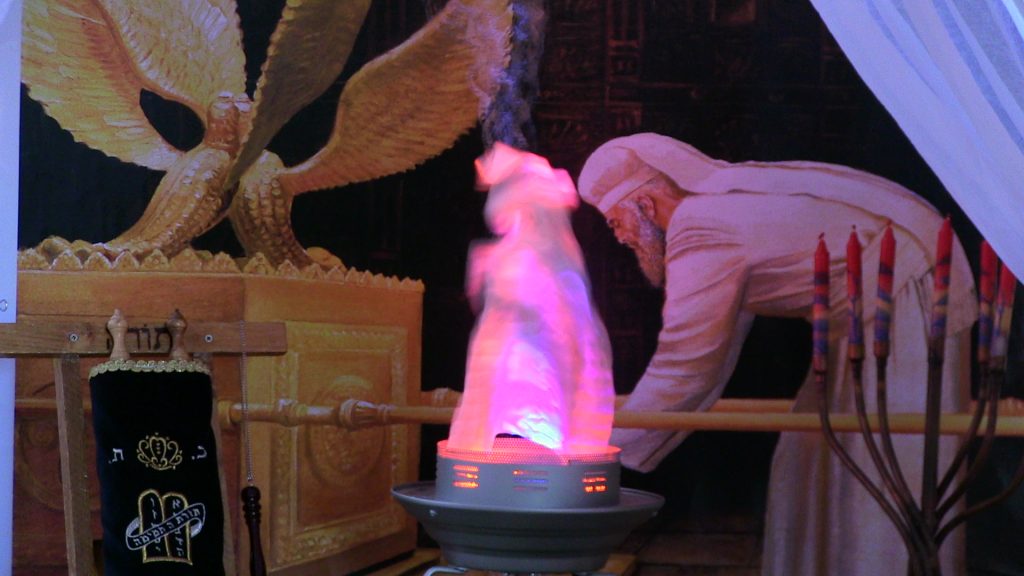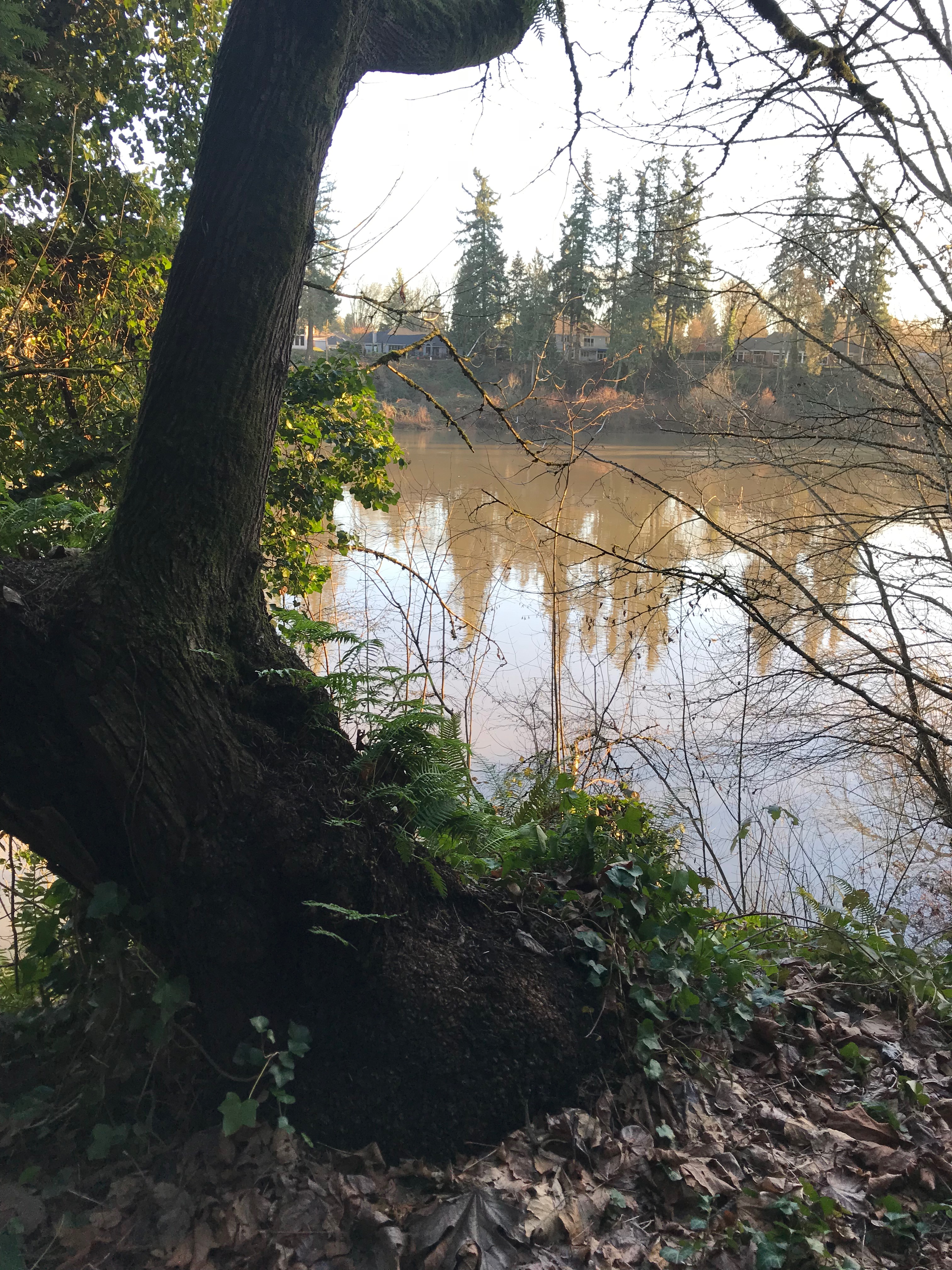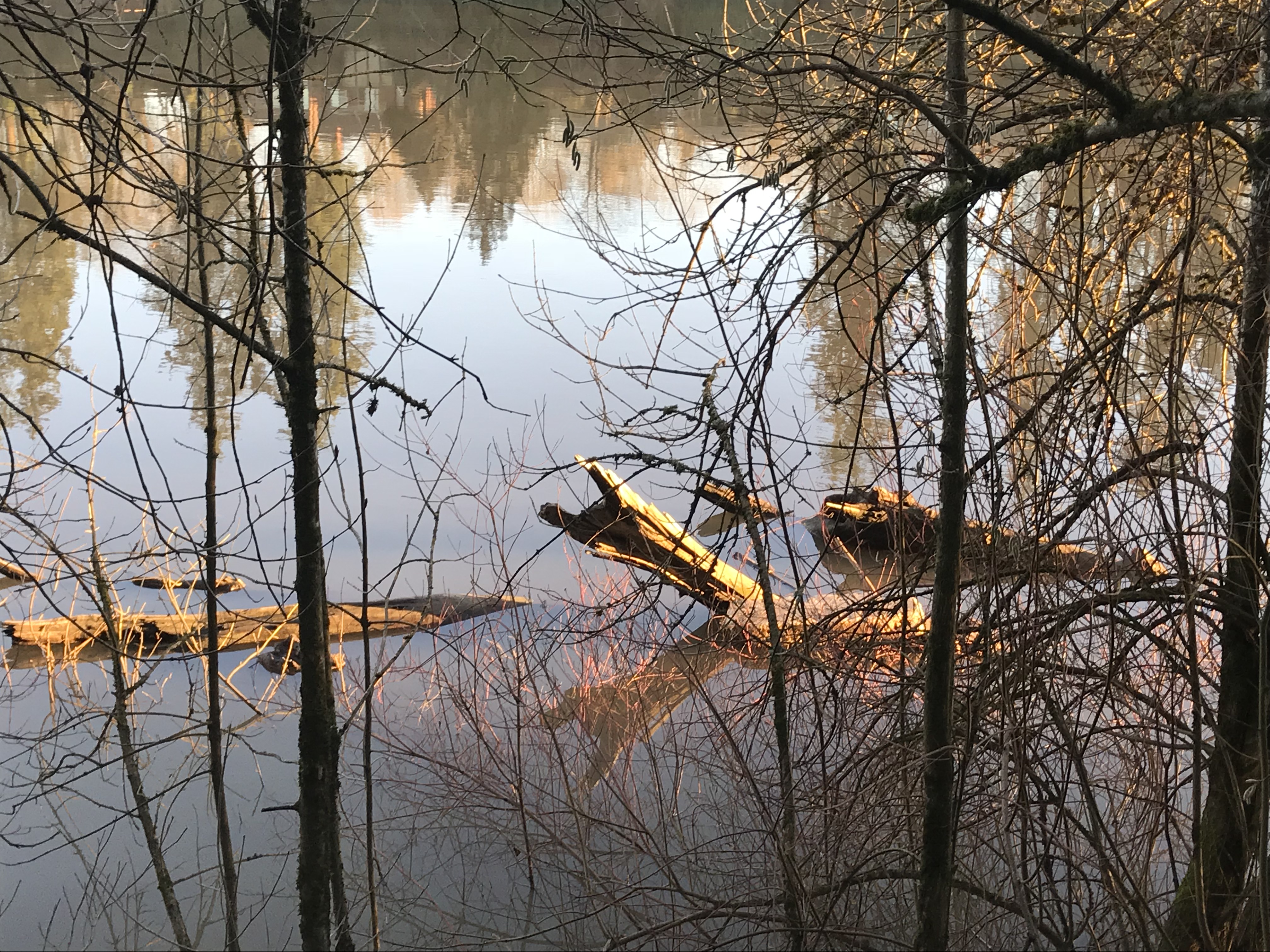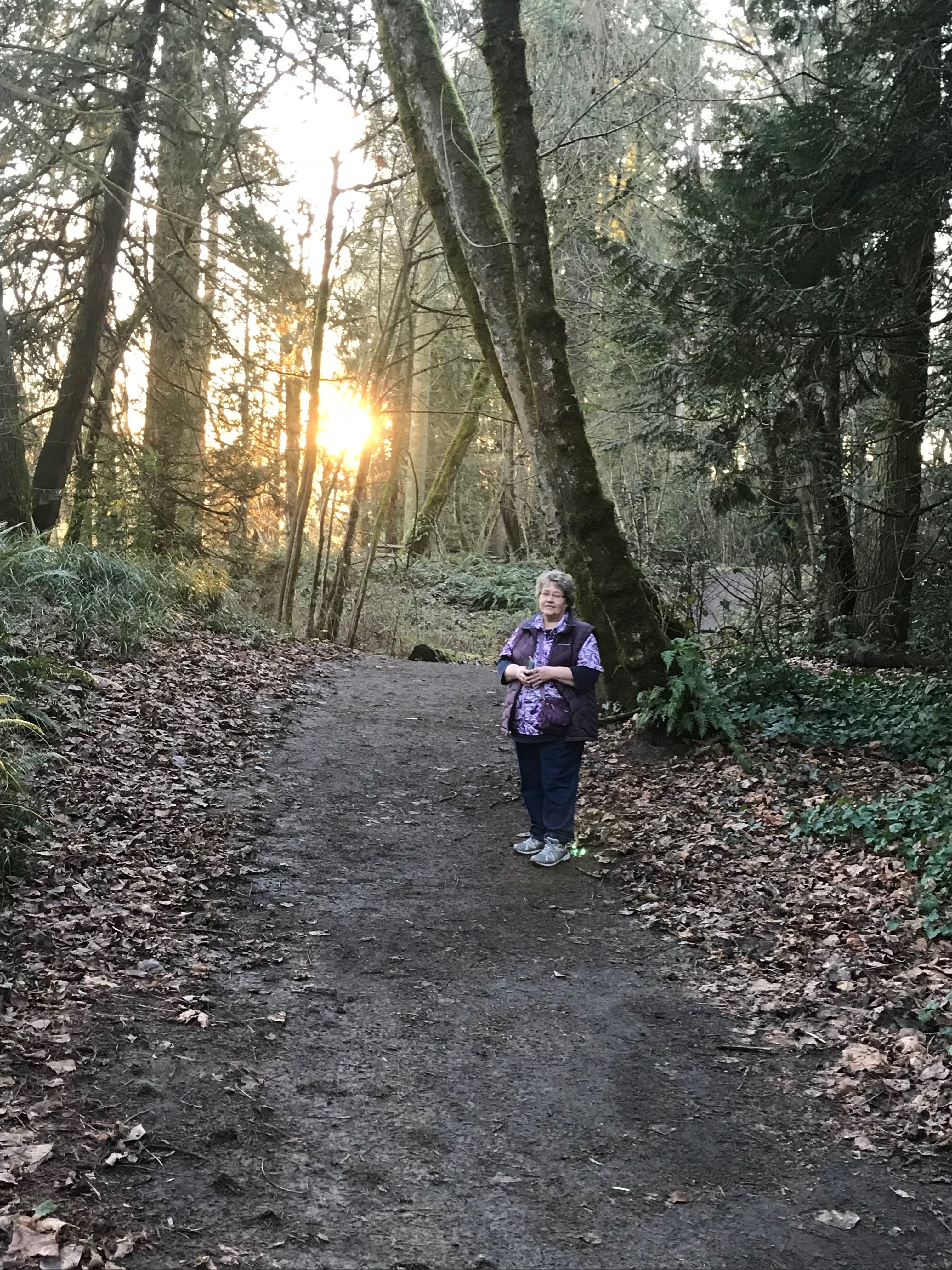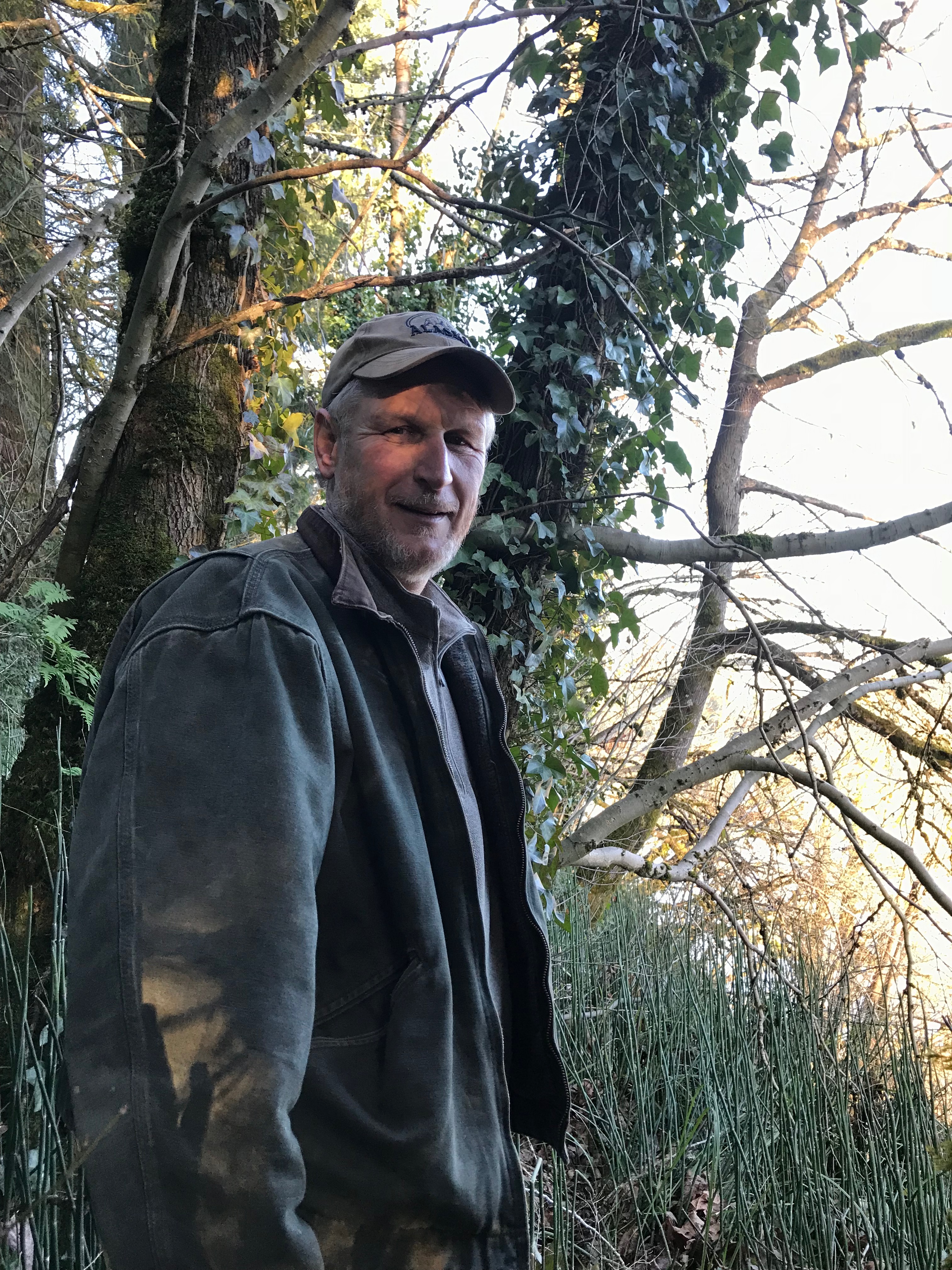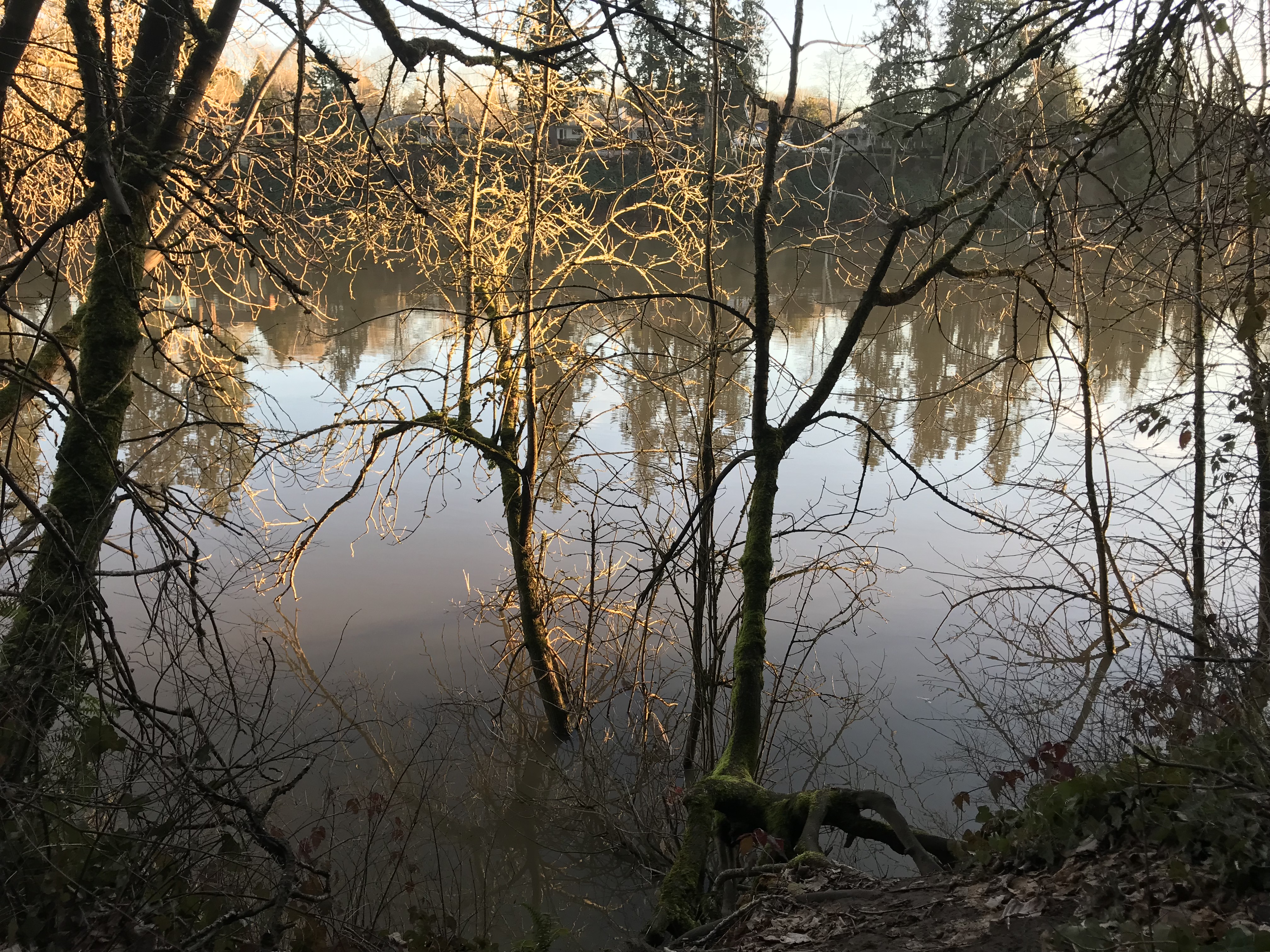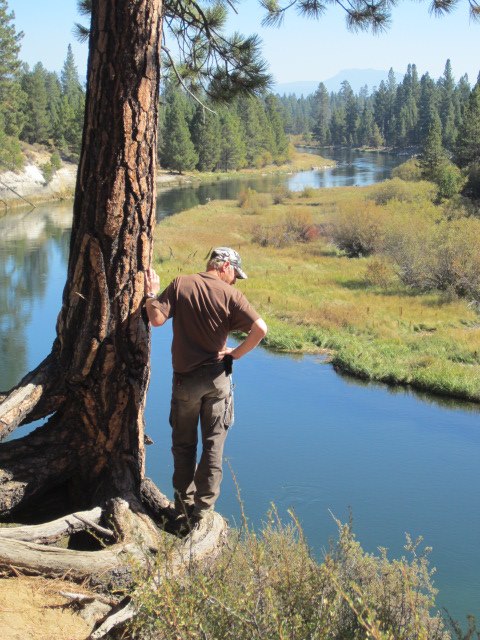
I’m not sure if anyone can relate to this poem, but I had fun writing it. Please enjoy. — Natan
By Natan Lawrence
The inspiration of this poem and its birth occurred while sitting next to the Deschutes River in La Pine, Oregon, during Sukkot (the Feast of Tabernacles) in 2018, while gazing admiringly at the mighty, towering ponderosa pine trees (Pinus ponderosa) that stand as sentinels gracing its banks. At the same time, the words of the First Psalm were floating around in the author’s mind.
La Pinus1 ponderosa2 at De Falls3 River waters4;
A weighty5 giant pondering6 heavenly matters.
Rejecting your former blackjack7 past,
Basking now in heaven’s light at last.
Arms and trunks are tanned a bright orange hue8,
With muscular limbs upraised in praise to You9—
To the Messiah, the radiant Sun of Righteousness10!
O piney tree by the rivers of water,
With crown aimed high—you’re a leafy psalter11.
The still small breath12 of heaven’s heart,
Strums happily your needley harp,
To all who’re attuned in full amaze—
And hear the Spirit’s psalm of praise.
La Pinus ponderosa by De Falls River’s edge—
Precariously planted on the sloping ledge?
Gravity inexorably can’t make you slip,
As you mock the current’s undercutting grip13.
Against the storms you’re resolute,
Exempt from its slavish tribute.
The desert’s torrid breath can’t make you wilt14.
It underestimates how well you’re built.
For deeply rooted are your hairy feet,
As they sate their thirst from the summer’s heat14.
Anchored firmly against the gale.
From brutal breezes that do assail.
Resting on the solid Rock15,
Heat and wind they can’t you shock16.
To the bank of Truth17 you tenaciously cling,
Imbibing the Spiritual life14 the waters bring.
As Heaven’s wind18 fills your leafy sail,
You clap your hands19 as me you regale.
O Pinus preacher at the River Deschutes,
You cry aloud from roots to shoots.
A riveting sermon loud and clear
To open ears both far and near.
Quietly praising the King above,
Silent shouting of heaven’s love!
Puzzle letters from your massive girth20,
A visible testament fall to the earth.
Of heaven’s radiance they joyously glow,
Trampled by naive hikers there below.
But when combined these letters spell,
The truth of heavens evangel21.
This tree’s a wellspring of worshipful praise,
In every tongue with limbs upraised!
La Pine’s1 ponderosas who grace your river blue,
There is much for me to learn from you.
Your arms point upwards in heaven’s praise,
Past you to Him, my eyes I’ll raise22!
This is my heartfelt prayer to You:
With Your Spirit and Truth23 my heart imbue.
From Your tree of life24 I’ll always feed
Producing an abundance of living seed.
May I be too a tree of life,
That my heart-would25 with your words be rife.
Amein.
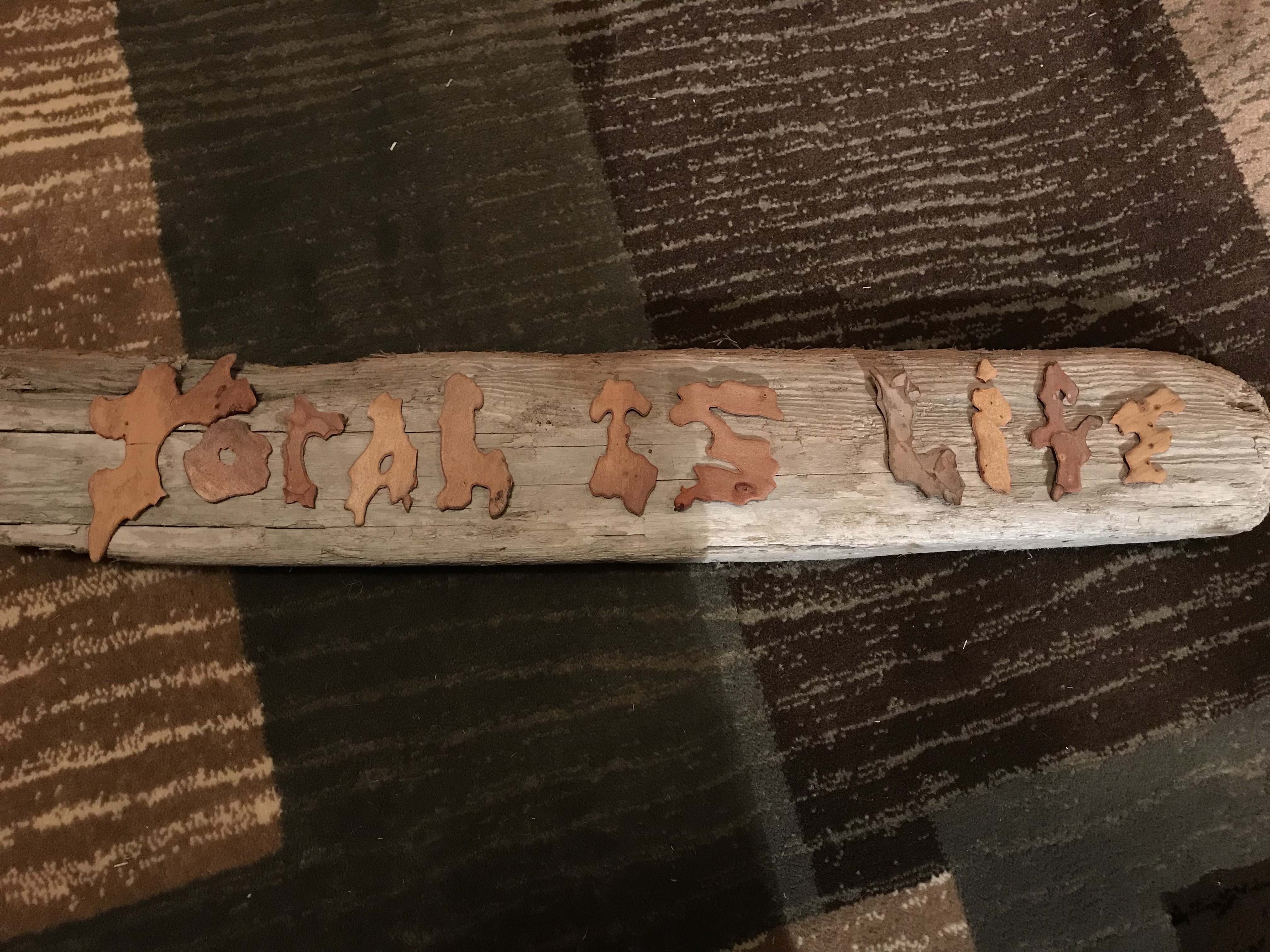
Letters of the alphabet from the bark of the ponderosa pine as found lying on the ground and unmodified.
Footnotes—The Poem Explained
1 A reference to La Pine, Oregon where the mighty ponderosa pines there inspired the author to write this poem. In fact, the ponderosa pine with the largest trunk diameter in the world of nine feet two inches is located in La Pine State Park—the location where the author commenced writing this poem.
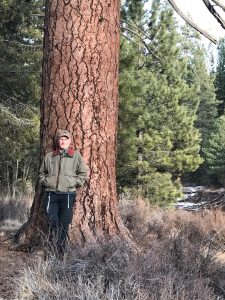
2 The Latin name for the ponderosa pine.
3 The name Deschutes is a French word meaning “of the or some waterfalls or rapids.” The Deschutes River of Central Oregon that flows through La Pine State Park in La Pine, Oregon has plenty of both.
4 The phrases “river waters,” “rivers of waters” and the like throughout this poem are hints to the first Psalm, verse three, which was in the author’s mind when writing this hymn.
5 “Weighty” is a wordplay on the word ponderosa, which derives from the Latin word ponderosus meaning, among other things, “ponderous, massive or weighty.”
6 A wordplay on ponderosa.
7 Juvenile ponderosa pines have black bark and are colloquially known as blackjack pines. This suggests, in poetic terms, a dark, dirty and sinful youthful past.
8 The older a ponderosa pine becomes, and the more exposed to the sunlight is, over time, its bark turns from a dark black to a bright golden red-orange color.
9 Capitalized personal pronouns in this poem are references to Elohim or Yeshua the Messiah (the God of the Bible).
10 This is a biblical reference to Malachi 4:2 where the prophesied Messiah is likened to the sun, for, indeed, as the Bible later reveals, the face of Yeshua the Messiah does, indeed, shine like the sun in its full strength (Rev 1:16). Moreover, the Bible reveals that Messiah is the Light of the world, who shows man the way out of spiritual darkness and into the spiritual light. The implication here is that the more and longer the ponderosa is exposed to the sun, the brighter and sunlight-like its bark becomes. Similarly, the longer a human is exposed to the spiritual light of Messiah, the more like him they will become, and the more they will reflect him in their personality and character.
11 A psalter is a book full of psalms employed for church liturgical purposes.
12 A reference to 1 Kings 19:12.
13 The Deschutes River, like many mountain rivers, is full of trees that have fallen into the river due to the eroding action of the quickly moving river of the bank on which the trees were precariously perched.
14 Again, the first Psalm verse three is in the author’s mind.
15 A reference to Yeshua the Messiah, the Rock of our salvation.
16 Plants can go into damaging or fatal shock mode when exposed too quickly to extreme heat and cold.
17 In several places, the Bible talks about the river of life. A river as two important components without which it couldn’t exist: a bank (or a channel) and water. To the author’s mind, the bank is like Truth, while the water is like the Holy or Set-Apart Spirit of Elohim. To be a true follower of Yeshua, one must have both the Truth of the Word of Elohim along with the Spirit of Elohim to understand it and then to live it. Our Father in heaven is seeking those to worship him in both Spirit and Truth (John 4:23–24).
18 That is, the Set-Apart Spirit of Elohim. There are a number of references in Scripture to the Spirit of Elohim being like wind (e.g. John 3:8; Acts 2:2).
19 The author had Isaiah 55:12 in mind here.
20 The older a ponderosa pine becomes, the more scaly its bark becomes, such that puzzle like scales or pieces of bark are constantly falling off of the trunk. The pieces are in all sizes and shapes. They literally look like pieces of a puzzle, and many of those pieces are in the shape of the letters of the alphabet. In fact, one can pick up letters and spell words. Some people even find the letters of their name and mount them on a board as a decorative plaque.
21 Or gospel.
22 The author here is reminded of Romans 1:20 where Paul tells us that there is much to be learned about the invisible attributes of Elohim from his visible creation that surrounds us and of which most humans are unaware.
23 This is another reference to the Spirit and Truth passage of John 4:23–24.
24 This is an obvious reference to the tree of life in the Garden of Eden. There are a number of other references in Scripture to the tree of life. All of these are metaphors for the Torah–word and wisdom of Elohim that comes through faith in and a relationship with Yeshua the Messiah who redeemed us from our sins by dying on a tree, and from which springs eternal life.
25 This is a play on words. The heartwood of a tree is its central part or most interior core, even as the human heart is at the center of the one’s being both literally and spiritually.
